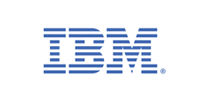About this course
What you'll learn
Instructors
Frequently Asked Questions
Ways to take this course
edX For Business
3 weeks
12–16 hours per week
Self-paced
Progress at your own speed
Free
Optional upgrade available
Choose your session:
9,152 already enrolled! After a course session ends, it will be archivedOpens in a new tab.
Introduction to Containers, Kubernetes and OpenShift
Awards

At a glance
- Institution: IBM
- Subject: Computer Science
- Level: Introductory
- Prerequisites:
There are no hard requirements needed to be able to take the course, however a foundation level understanding of Cloud Computing will help.
- Language: English
- Video Transcript: English
- Associated programs:
- MicroBachelors Program in Full Stack Cloud Application Development
- Professional Certificate in Full Stack Cloud Developer
- Professional Certificate in Cloud Native Foundations
- Professional Certificate in DevOps and Software Engineering Professional Certificate
About the instructors
Who can take this course?
Unfortunately, learners residing in one or more of the following countries or regions will not be able to register for this course: Iran, Cuba and the Crimea region of Ukraine. While edX has sought licenses from the U.S. Office of Foreign Assets Control (OFAC) to offer our courses to learners in these countries and regions, the licenses we have received are not broad enough to allow us to offer this course in all locations. edX truly regrets that U.S. sanctions prevent us from offering all of our courses to everyone, no matter where they live.Interested in this course for your business or team?
Train your employees in the most in-demand topics, with edX For Business.


